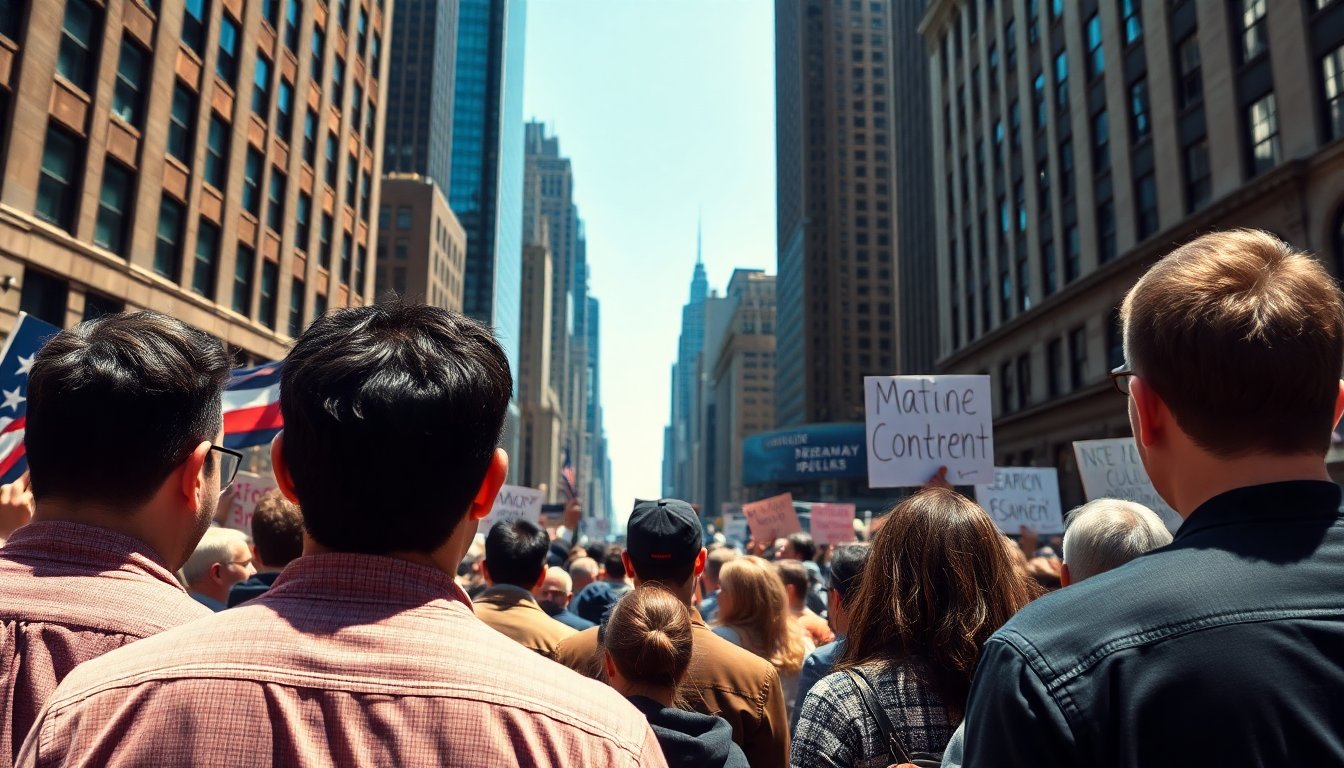Table of Contents
The political arena is often characterized by unexpected alliances and rivalries. In recent months, the turbulent relationship between Donald Trump and Zohran Mamdani has captivated many, illustrating how electoral success can significantly influence rising political figures. It all began when Mamdani, a progressive candidate, sought to understand the motivations of Trump voters in New York, which ultimately shaped his campaign and approach to governance.
Mamdani’s journey into the limelight started with a viral video where he engaged New Yorkers, asking them about their decision to support Trump. The responses he gathered were not merely anecdotal; they provided critical insights into the sentiments of constituents. This interaction laid the groundwork for a campaign that aimed to address the underlying concerns of those who felt unheard in the political discourse.
Trump’s policy decisions and their implications for immigrants
In a recent announcement, Trump declared an end to the temporary legal protections for Somali migrants residing in Minnesota, further polarizing an already divided political landscape. His statement came amidst ongoing debates about immigration policy, a topic that has been central to his political narrative since his initial campaign. The Temporary Protected Status (TPS) program, which was established to safeguard individuals from deportation due to crises in their home countries, has faced numerous challenges under Trump’s administration.
In Minnesota, home to the largest Somali community in the United States, the repercussions of Trump’s decision are profound. Many of these individuals fled the ravages of war in Somalia and sought refuge through social support systems in the state. However, reports indicate that only around 705 Somali migrants currently benefit from the TPS program, raising questions about the broader impact of Trump’s policy.
Community response to Trump’s immigration policy
The Council on American-Islamic Relations (CAIR) in Minnesota responded strongly to Trump’s announcement, emphasizing that it would have devastating effects on families. The organization’s executive director, Jaylani Hussein, articulated that this move transcends mere bureaucratic changes; it represents a politically charged attack on the Somali and Muslim community, fueled by Islamophobic rhetoric.
As Trump gears up for another presidential campaign, he has reiterated his commitment to stringent immigration policies, vowing to remove millions of undocumented individuals from the country. This commitment has led to the withdrawal of protections for various groups, including Venezuelans and Haitians, highlighting a broader strategy aimed at tightening immigration laws.
The unexpected turn in Trump and Mamdani’s relationship
Amid the backdrop of political tension, something remarkable occurred. After months of verbal sparring, during which Trump labeled Mamdani a “communist lunatic,” the two leaders met in the Oval Office on November 21, 2025. The outcome of this meeting was unexpected; Trump emerged from the discussion showering Mamdani with praise, stating, “The better he does, the happier I am.” This surprising shift in tone marked a significant departure from their previous interactions.
Mamdani, known for his unwavering stance on housing affordability and social equity, did not back down during the meeting. Instead, he pressed Trump on critical issues affecting New Yorkers, demonstrating his commitment to addressing the needs of the community. Trump, in a rare moment of concession, acknowledged that some of Mamdani’s ideas aligned with his own, indicating a potential for collaboration.
Analyzing the implications of their meeting
The meeting between Trump and Mamdani raises essential questions about political dynamics. While it remains unclear whether this is a genuine recognition of Mamdani’s abilities or a strategic maneuver by Trump to co-opt a formidable opponent, it is evident that the landscape is shifting. Mamdani’s resilience has earned him unexpected respect, showcasing the importance of strength in political discourse.
As the newly elected mayor of New York, Mamdani represents a significant shift in leadership, which Trump must now navigate. Whether this meeting signifies the beginning of a cooperative effort between their administrations or simply another chapter in Trump’s history of unpredictable alliances remains to be seen. What is clear is that Mamdani’s rise and Trump’s fluctuating stance exemplify the complex interplay of politics, ideology, and the pursuit of power.


